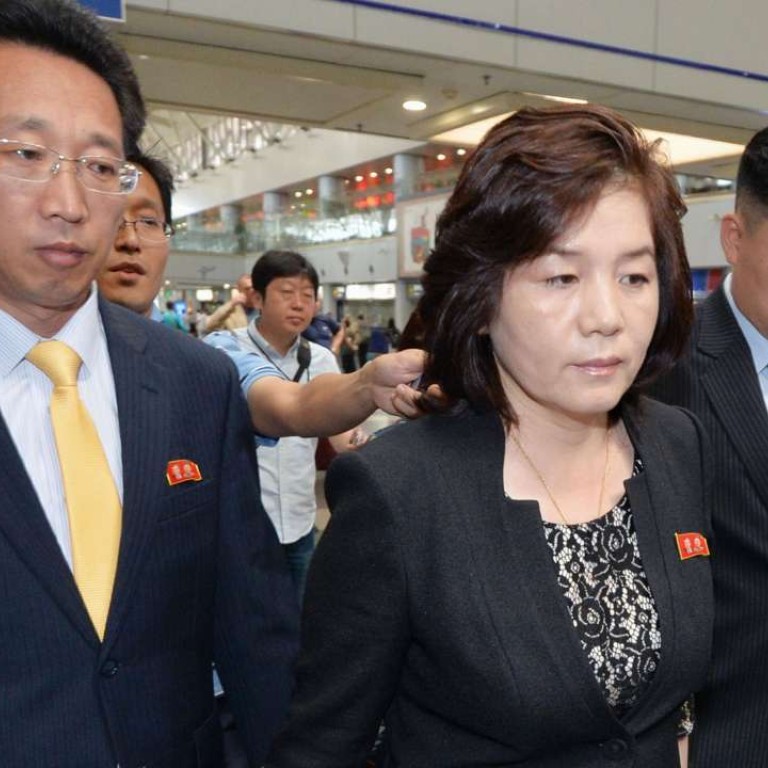
North Korean diplomat arrives in China for security conference
First time nation has sent delegate to forum in four years amid international concern over Pyongyang’s nuclear weapons programme
A senior North Korean diplomat, who has long been in charge of her country’s talks with the United States, arrived on Monday in China to most likely attend a security conference.
The arrival of Choe Son Hui, deputy chief of the Foreign Ministry’s North American affairs bureau, was confirmed at Beijing Capital International Airport. She did not respond to questions from reporters.
The two-day informal conference from Wednesday, called the Northeast Asia Cooperation Dialogue, brings together government officials and experts from China, Japan, North Korea, South Korea, Russia and the United States, the members of long-stalled talks on Pyongyang’s nuclear programme.
The US State Department said on Friday that Sung Kim, special representative for North Korea policy, would visit Beijing from Tuesday to Thursday to hold meetings with Chinese officials and take part in the closed-door security dialogue.
China and Japan are also considering sending their top nuclear negotiators, Wu Dawei and Kenji Kanasugi, to the talks, organised almost every year by the Institute on Global Conflict and Cooperation at the University of California, San Diego, according to officials familiar with the situation.
Diplomatic sources said earlier this month that North Korea, which did not send any official to the event for the last three years, was expected to be represented by Choe.
The gathering provides a rare opportunity for officials from North Korea and the five other countries in the nuclear negotiations to sit together.
It comes after North Korean leader Kim Jong-un made it clear early last month at a once-in-a-generation party congress that his country would continue to upgrade nuclear capabilities as a deterrent to perceived threats from the United States.
In the months leading up to the congress of the ruling Workers’ Party, North Korea carried out a wave of weapons tests and issued belligerent statements toward South Korea and the United States.
But following the congress, held for the first time in 36 years, Pyongyang has sent some signals that it might be more willing to engage in diplomacy.
North Korea’s new top official in charge of foreign affairs, Ri Su Yong, met with President Xi Jinping on June 1. It marked Xi’s first meeting in three years with a senior North Korean official in the Chinese capital.
The institute has provided no details of the forthcoming conference, but it has explained that the framework has proven “its value as the only ongoing regular channel of informal communication among the six governments” since 1993 when it was initiated by Susan Shirk, a former senior US official and a professor of the university.
Attention is focused on whether the US special representative will hold talks with North Korean officials on the sidelines of the dialogue.
The 2006 conference in Tokyo, attended by then North Korean chief nuclear negotiator Kim Kye Gwan paved the way for the resumption of the six-party talks.
The multilateral talks aimed at ending North Korea’s nuclear ambitions have been deadlocked since late 2008.

